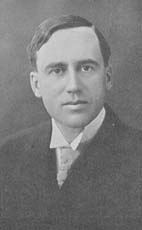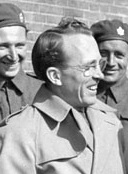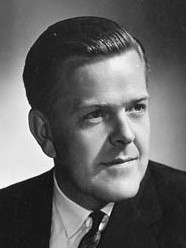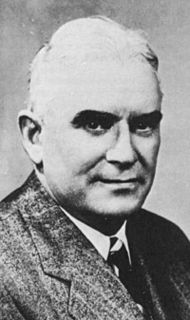| |||||||||||||||||||||||||||||||||||||||||||||||||
83 seats in the Legislative Assembly of Alberta 42 seats needed for a majority | |||||||||||||||||||||||||||||||||||||||||||||||||
|---|---|---|---|---|---|---|---|---|---|---|---|---|---|---|---|---|---|---|---|---|---|---|---|---|---|---|---|---|---|---|---|---|---|---|---|---|---|---|---|---|---|---|---|---|---|---|---|---|---|
| Turnout | 53.60% | ||||||||||||||||||||||||||||||||||||||||||||||||
| |||||||||||||||||||||||||||||||||||||||||||||||||
| |||||||||||||||||||||||||||||||||||||||||||||||||
The Alberta general election of 1989 was the twenty-second general election for the Province of Alberta, Canada. It was held on March 20, 1989, to elect members of the Legislative Assembly of Alberta.

Alberta is a western province of Canada. With an estimated population of 4,067,175 as of 2016 census, it is Canada's fourth most populous province and the most populous of Canada's three prairie provinces. Its area is about 660,000 square kilometres (250,000 sq mi). Alberta and its neighbour Saskatchewan were districts of the Northwest Territories until they were established as provinces on September 1, 1905. The premier has been Rachel Notley since May 2015.

Canada is a country in the northern part of North America. Its ten provinces and three territories extend from the Atlantic to the Pacific and northward into the Arctic Ocean, covering 9.98 million square kilometres, making it the world's second-largest country by total area. Canada's southern border with the United States is the world's longest bi-national land border. Its capital is Ottawa, and its three largest metropolitan areas are Toronto, Montreal, and Vancouver. As a whole, Canada is sparsely populated, the majority of its land area being dominated by forest and tundra. Consequently, its population is highly urbanized, with over 80 percent of its inhabitants concentrated in large and medium-sized cities, many near the southern border. Canada's climate varies widely across its vast area, ranging from arctic weather in the north, to hot summers in the southern regions, with four distinct seasons.

The Legislative Assembly of Alberta is one of two components of the Legislature of Alberta, the other being Elizabeth II, Queen of Canada, represented by the Lieutenant-Governor of Alberta. The Alberta legislature meets in the Alberta Legislature Building in the provincial capital, Edmonton. The Legislative Assembly consists of 87 members, elected first past the post from single-member electoral districts.
Contents
Many political observers were surprised by the early election call as less than three years had passed since the previous election. Premier Don Getty, in his second election as Progressive Conservative Party leader, led it to its sixth consecutive term in government, despite losing a significant share of the popular vote and two seats in the legislature, including his own seat of Edmonton-Whitemud to Liberal candidate Percy Wickman.
A snap election is an election called earlier than expected.

The Premier of Alberta is the first minister for the Canadian province of Alberta. He or she is the province's head of government. The current Premier of Alberta is Rachel Notley, who was sworn in on May 24, 2015.
The New Democratic Party led by Ray Martin largely held its share of the popular vote, and also its 16 seats in the legislature.

The Alberta New Democratic Party, commonly shortened to Alberta NDP, is a social-democratic political party in Alberta, Canada, which succeeded the Alberta section of the Co-operative Commonwealth Federation and the even earlier Alberta wing of the Canadian Labour Party and the United Farmers of Alberta. From the mid-1980s to 2004, the party abbreviated its name as the "New Democrats" (ND).
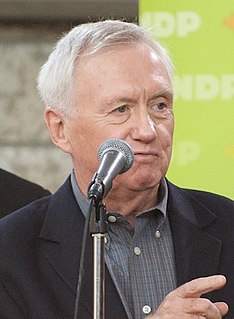
Raymond James "Ray" Martin is a politician in Alberta, Canada and former member of the Legislative Assembly of Alberta.
The Liberal Party, under new leader Laurence Decore, was the principal beneficiary of the voters' continuing distrust of Don Getty. The Liberals' share of the popular vote increased to over 28%, more than the NDP, but the party's legislative caucus increased from four to only eight members.
The Alberta Liberal Party is a provincial political party in Alberta, Canada. Founded in 1905, it was the dominant political party until the 1921 election, with the first three provincial Premiers being Liberals. Since 1921, it has formed the official opposition in the Legislative Assembly of Alberta several times, most recently from 1993 until 2012. Fourteen Liberals have served as Leader of the Opposition of Alberta.

Laurence George Decore, was a Ukrainian-Canadian lawyer and politician from Alberta. He was mayor of Edmonton, a member of the Legislative Assembly of Alberta, and leader of the Alberta Liberal Party.
The Representative Party, which had elected 2 candidates in the previous election, did not run any candidates in 1989 (although it remained registered). Leader Ray Speaker defected to the Progressive Conservatives, while Walt Buck retired. The party disbanded soon after the election.
The Representative Party of Alberta was a provincial political party in Alberta, Canada formed by former Alberta Social Credit Party parliamentary leader Raymond Speaker in 1984. The party was right-of-centre, conservative in ideology and considered a modern version of Social Credit without the social credit monetary reform policy.
Raymond Albert "Ray" Speaker, is a Canadian farmer and politician. Speaker was born and raised in Enchant, Alberta where he farms to this day. He was an elected official at the federal and provincial levels for 34 years, and never lost an election.
Walter Alexander "Walt" Buck was a provincial politician and dentist from Alberta, Canada. He served as a member of the Legislative Assembly of Alberta (MLA) from 1967 to 1989. During his time in office he served in numerous party caucuses and as an Independent.


